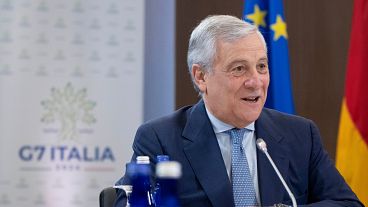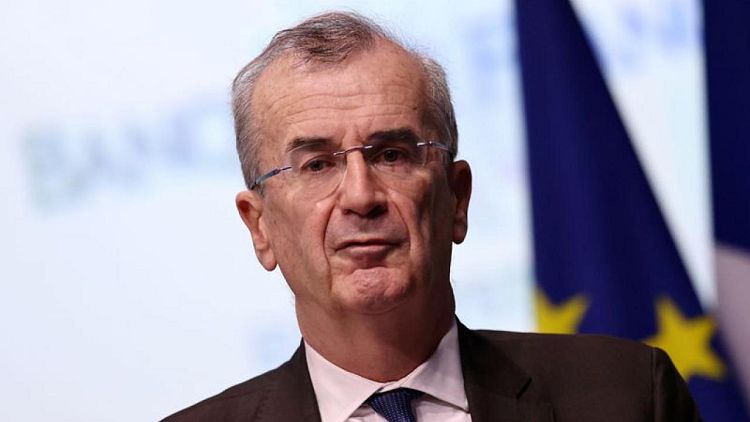PARIS -European Central Bank policymakers sought to reassure investors rattled by a new variant of the coronavirus on Monday, arguing that the euro zone's economy had learned to cope with successive waves of the pandemic.
Carrying a "very high" global risk of surges according to the World Health Organization, the Omicron variant is threatening a brisk economic revival and could jeopardise plans by the ECB and other global central banks to dial back emergency support after nearly two years.
But ECB President Christine Lagarde, her deputy Luis de Guindos and French governor Francois Villeroy de Galhau put on a brave face against this new risk.
"There is an obvious concern about the economic recovery in 2022, but I believe we have learnt a lot," Lagarde told Italian broadcaster RAI late on Sunday.
"We now know our enemy and what measures to take. We are all better equipped to respond to a risk of a fifth wave or the Omicron variant."
She was echoed by her fellow countryman and ECB policymaker Francois Villeroy de Galhau who said "successive waves have proven so far to be less and less damaging, and this one shouldn't presumably change the economic outlook too much".
ECB vice-president Luis de Guindos acknowledged the "high degree of uncertainty" and called for keeping all policy options open but he argued much higher vaccination rates should help Europe better deal with these risks.
All major vaccine manufacturers have begun work on a new variant and U.S. firm Moderna said a new vaccine could be available in large quantities in early 2022.
Markets regained composure on Monday as investors awaited further details of the variant, which has caused travel curbs to be reimposed in some countries. [MKTS/GLOB]
UNDER PRESSURE
The ECB is under pressure to reduce its monetary stimulus, starting from its 1.85 trillion euros ($2.09 trillion) Pandemic Emergency Purchase Programme (PEPP), as euro zone inflation makes multi-decade highs above 4%.
But consumer sentiment started turning south even before news of the variant broke last week, data showed on Monday.
"Given the rapid developments over the past days concerning the Omicron variant, the November...reading likely overstates broader sentiment in the eurozone among participants," Rory Fennessy, an economist at Oxford Economics, wrote in a note.
"The current uncertainty posed by the Omicron variant adds another headwind to the economic outlook."
The ECB has pledged to run PEPP until the damage wrought to inflation by the pandemic is repaired.
This has arguably happened, with inflation in the euro zone seen hitting 4.4% this month and staying above the ECB's 2% target next year.
De Guindos said on Friday that PEPP would end in March as planned and the debate among policymakers was about "alternatives".
With the PEPP decision seen as a done deal before the advent of the new coronavirus variant, euro zone rate setters had mainly been discussing whether to increase bond purchases via other channels, such as the ECB's regular Asset Purchase Programme.
($1 = 0.8861 euros)















